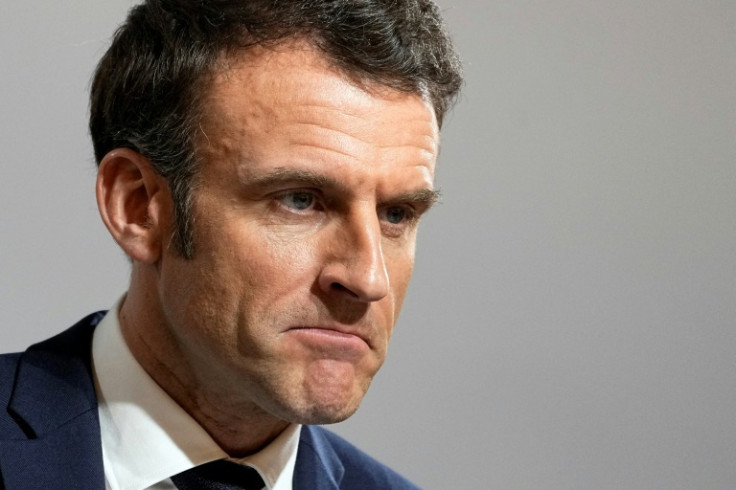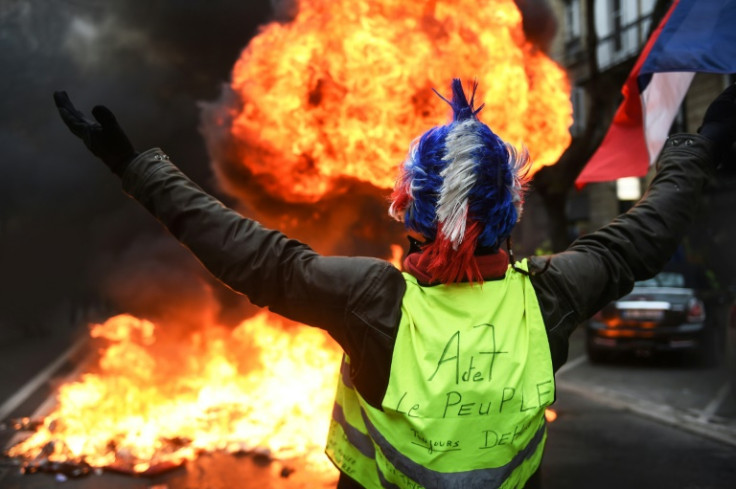France's Macron: Defiant Yet Weakened After Pensions Debacle

French President Emmanuel Macron might be on the verge of securing his cherished reform of the pension system, but analysts see it as a Pyrrhic victory that will leave him politically weakened.
Unable to find a parliamentary majority for the changes in the National Assembly, the 45-year-old leader decided Thursday to invoke a controversial executive power that enables the government to ram legislation through parliament without a vote.
Such a move would be unthinkable in many democracies, but is legal under France's 65-year-old constitution which concentrates power in the hands of the president at the expense of MPs.
But Macron's decision to turn to the notorious article 49.3 for such an important reform was seen as both a sign of weakness and an abuse of power by critics.
"There's a feeling that the government is not listening to people and on top of that they are not listening while behaving brutally in the National Assembly," Antoine Bristielle, a political analyst at the Fondation Jean-Jaures, a Paris think-tank, told AFP.
Polls show that around two out of three French people oppose the idea of raising the retirement age from 62 to 64.
Macron's minority government will now face a no-confidence vote next week, which it looks likely to survive, leaving the president simply to sign the legislation into law.
"Assuming that opposition parties do not bring down the government, it's a Pyrrhic victory for Emmanuel Macron," warned Stephane Zumsteeg, head of polling in France for the Ipsos public opinion group.
"Even if it comes into law, the legacy will be a very damaged relationship between the French public and the president," he added.
Criticisms of Macron's ruling style are nothing new.
He appeared to have learned there were limits to executive power in 2018 when a fierce anti-government revolt by "Yellow Vest" protesters shook the country, with much of the anger directed at him and his abrasive personality.
After defeating far-right leader Marine Le Pen in April to win a second term, he acknowledged in a humble victory speech that many people had voted for him simply to keep Le Pen out of power.
He promised a "new method" that would involve more consensus-building and consultations, saying shortly after his inauguration in May that French people were "tired of reforms that come from the top down".
When elections for the National Assembly in June delivered the first hung parliament in more than two decades, analysts saw the result as a starkly divided country deliberately putting limits on Macron's authority.
"He talked about more humility, more consultations, less top-down, listening to people more, and in fact he's done exactly the opposite," Zumsteeg said.
Macron made no public comment on Thursday -- and has not given a press conference, media interview or speech dedicated to the reform since it was unveiled in January.
In comments briefed to the media, the former investment banker was said to have approved using article 49.3 because the "financial and economic risks are too great" of failing to make the changes.
The government is counting on raising the retirement age to save billions of euros a year to help lower galloping government borrowing, with its credibility in financial markets and with its European partners on the line.
Most of France's EU allies have already hiked the age to 65 or above.
The big question for Macron is what he can achieve for the remainder of his term, which runs until 2027 when he will be obliged to step down after serving two mandates.
"On health, the green transition or immigration, there might be possibilities for reforms," political analyst and author Brice Teinturier told AFP.
Others are more pessimistic.
"I'm wondering whether we can rebound from this," one ruling party MP said, asking not to be named.
Other usually loyal lawmakers are in open disagreement, insisting the government should have organised a vote on the legislation, even if they risked defeat.
The bigger questions for the country are whether Macron will now spark another round of violent and economically costly protests -- and whether he has increased the chances of Le Pen and her National Rally party coming to power.
The left-leaning Le Monde newspaper accused Macron of "playing with fire" in an editorial on Friday.
For Emilie Zapalski, an expert in political communication, the episode "will feed the vote for the National Rally".

© Copyright AFP 2024. All rights reserved.





















